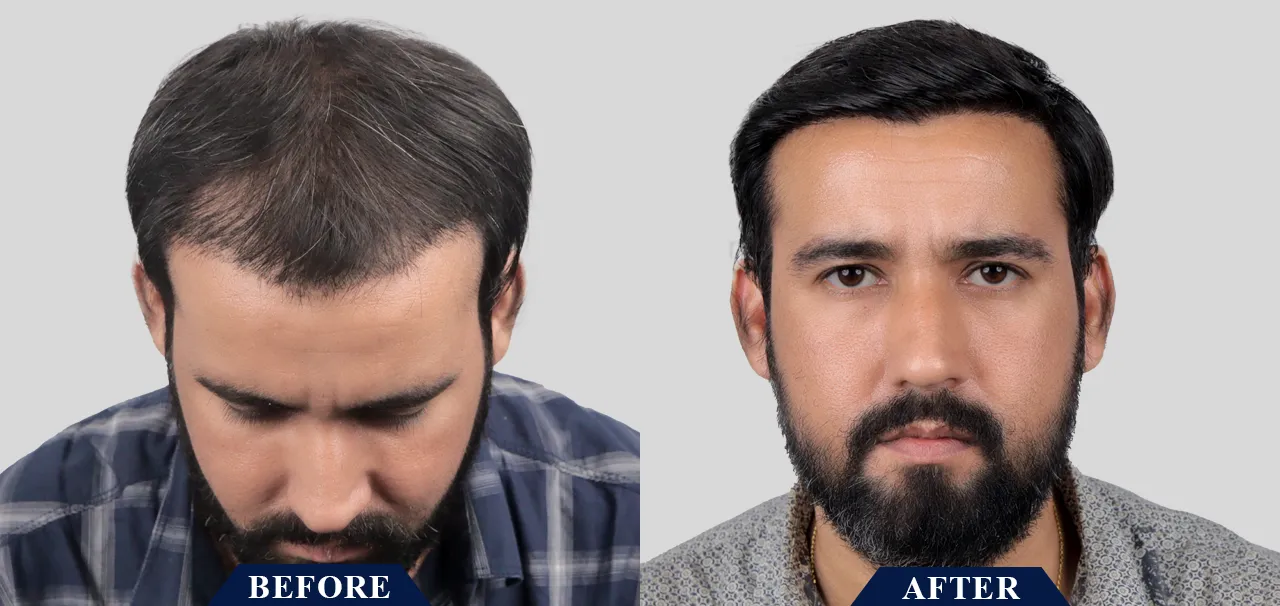
Vegan Hair Loss: Expert Tips and Advice
Have you recently transitioned to a vegan lifestyle and noticed that your hair isn’t as vibrant and healthy as it

Anagen Effluvium refers to hair shedding that commences during the growth stage of the hair growth cycle. Anagen effluvium has shown to cause diffuse non-scarring alopecia. This is in stark contrast to telogen effluvium where hair shedding onsets during the resting phase of the hair growth cycle.
Sudden and diffuse hair loss affecting the scalp and potentially eyebrows, eyelashes, and body hair.
Tapered, irregular, or broken hair shafts at the ends.
Infections
Toxins
Autoimmune diseases
Medications (such as chemotherapy drugs)
Radiation therapy
While a complete cure may not always be achievable, various methods can help manage hair loss due to anagen effluvium:
Minoxidil topical solutions: These stimulate hair growth and may promote some regrowth.
Cosmetic options: Hair thickening products or wigs can offer temporary solutions for cosmetic concerns.
Scalp cooling: Used during chemotherapy, this technique helps reduce blood flow to the scalp, minimizing hair follicle exposure to chemotherapy drugs and potentially limiting hair loss.
While hair transplants may be advertised as a solution, it’s important to consult with a dermatologist to explore all options and determine the most suitable treatment for your specific case. Hairfree and Hairgrow will provide you with the best solution in the least amount of time.

Have you recently transitioned to a vegan lifestyle and noticed that your hair isn’t as vibrant and healthy as it

The man-bun hairstyle, while not as trendy as it once was, remains a popular choice among certain subcultures. However, if

While alcohol itself doesn’t directly cause hair loss, excessive drinking can contribute to it by hindering nutrient absorption, causing dehydration,
Find Out in 3 Minutes, Your Hair Problem Solution.
Alopecia areata is an autoimmune condition where the body’s immune system mistakenly attacks healthy hair follicles. This leads to sudden, patchy hair loss, usually on the scalp or beard. It doesn’t destroy the follicles permanently, so hair can regrow, though the timing and extent vary for each person.
The exact cause isn’t fully understood, but alopecia areata is mostly linked to autoimmune dysfunction. Genetics, family history, and environmental triggers like infections or stress may also play a role. The immune system targets hair follicles, causing hair to fall out in small, round patches, typically without pain or irritation.
Alopecia areata affects around 1 in every 100 people globally at some point in their lives. It’s a fairly common condition and can affect people of all ages, though it often begins in childhood or teenage years. Both men and women are equally affected by this type of hair loss.
The most obvious symptom is sudden hair loss in small, round patches on the scalp, beard, or other body parts. The skin underneath is usually smooth and normal. In some cases, people experience tingling or itching before hair falls. Fingernails may also develop dents or ridges in some cases.
Hairfree & Hairgrow Clinic offers customized treatments including corticosteroid injections, topical immunotherapy, minoxidil, PRP therapy, and in some cases, hair transplants. The approach depends on the severity and extent of hair loss. Their team of experts assesses each case individually to offer the most suitable, results-driven treatment plan.
Minoxidil can be somewhat effective for mild alopecia areata, especially when used in early stages. It helps stimulate hair regrowth by increasing blood flow to hair follicles. However, it’s not a cure and may work better when combined with other treatments like corticosteroids or PRP therapy. Results vary from person to person.
Yes, emotional or physical stress can be a trigger for alopecia areata, especially in people genetically prone to autoimmune issues. Stress doesn’t directly cause the condition, but it can disrupt immune balance, potentially leading to flare-ups or new hair loss patches. Managing stress is often part of the treatment approach.
There’s no permanent cure for alopecia areata, but hair often regrows on its own, especially in mild cases. The regrowth process may take weeks or months. Some people experience complete recovery, while others may have recurring episodes. Treatments help accelerate regrowth and reduce the chances of new hair loss patches.
Alopecia areata is a broad term for patchy hair loss on the scalp and other areas, while alopecia barbae is a subtype specifically affecting the beard region. Both are autoimmune-related, but alopecia barbae targets facial hair. The causes, symptoms, and treatments are largely similar, though the affected area differs.
Hairfree & Hairgrow Clinic has branches across India, including Pune, Mumbai, Delhi (Gurugram), Ahmedabad, Hyderabad, and more. They specialize in treating various hair loss conditions, including alopecia areata, with personalized treatment plans and transplant services.

About Hair Transplant
©2025 Hairfree laser Pvt ltd All rights reserved.
Developed by : Priyesh Khatrani